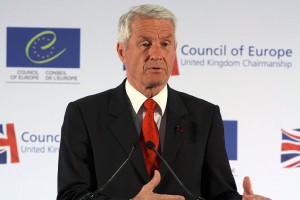Next week over one thousand people from some hundred countries will descend on the Council of Europe headquarters in Strasbourg for an event that promises to break the mould of political debate. Not just the usual roll-call of dignitaries, the World Forum for Democracy will see bloggers, activists, business people and the general public join in a debate that is ready to be revisited – just how can we make democracy truly effective in diverse modern societies?
The Forum is something new. The first time a European organisation has truly opened itself up to the worldwide community – a surprising gesture for an organisation with a track record of over 60 years defending democracy – it is proof of a new willingness to shake off complacency and take a fresh look at old issues. It will bring together visitors from the five continents, the very young and the extremely experienced, people who have travelled halfway across the world, and people of different – and sometimes clashing – traditions, culture, religions and points of view, all with one thing in common: a belief in or an aspiration to democracy.
Over 20 years ago, at a time when democracy in the West was taken very much for granted, Mikhail Gorbachev predicted in the Council of Europe’s debating chamber that society and politics could change if the choice was made by the people themselves. That prediction was prophetic. What followed was a revolution from a population which longed to express themselves and to have a say in how society ran.
That first wave of change in Europe was seismic; the most recent – the Arab Spring, driven by the speed and sweep of mass communications, showed that the thirst for democracy is worldwide, and that technology is the means by which it can make itself felt. This is the generation for which older methods no longer chime, with falling turn-out at local, national and European elections matched only by increased public cynicism with government and large international bureaucracies. Instead, people are turning to Twitter, texting and online communities; coming together to voice opinions that they think are valid and right.
The impulse to make a view felt, and the ease with which it now happens, is bringing new factors into the debate. Never a perfect system, democracy always assumed a certain amount of compromise. Democracy will always be unfinished business, work in progress. Modern communication is revealing how complex and controversial public debate can be. Freedom of expression may indeed be one of democracy’s starting points, but how far should it go? Do governments have a right to censor material that may cause insult? Should we simply self-censor, and refrain from free and public debate? Where do the borders lie?
New trends in society are inevitably bringing challenges to which we must find lasting and democratic solutions. We can no longer assume that democracy may lead to models of society we have known up until now. Polls in Islamic countries show that freedom of expression is cherished overall, but that voting intentions may go towards theocratic or even military government. The point for everyone is having the freedom to choose and to make sure that every choice is reversible by using democratic means.
Today’s world is no longer bound by borders, but by ideas. The Forum (next week) will be the moment for those ideas to be aired and shared in real-time and for the world community to enrich the debate on democracy. For the Twitter generation, engaged and ready to take responsibility, it’s time to upgrade to Democracy 3.0.




















































